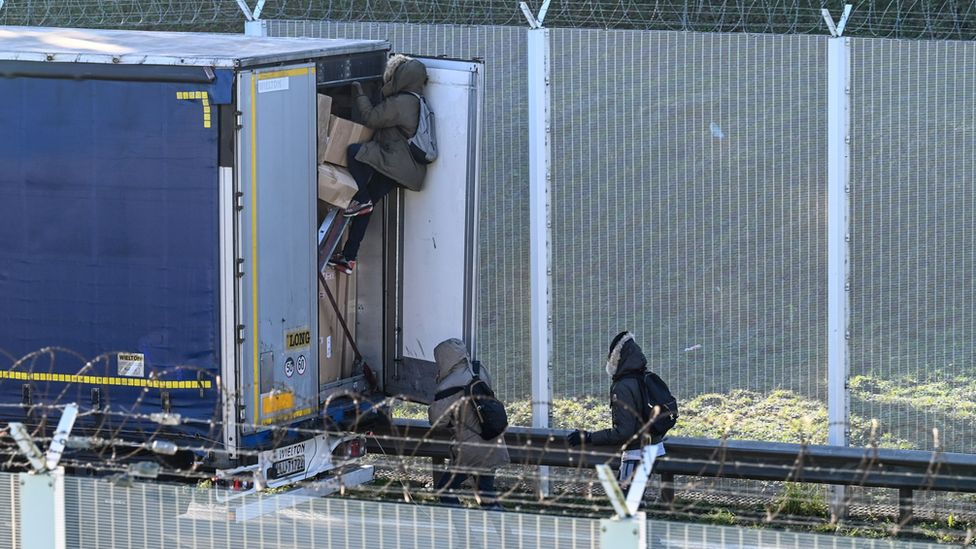Channel migrants: Truck drivers protest over rise in fines
- Published

Fines for lorry drivers caught at the Channel ports with illegal immigrants hiding in their vehicles are being increased fivefold from 13 February.
Hauliers will be fined £10,000 per stowaway, up from £2,000.
The government said it was targeting "negligence rather than criminality", and wanted drivers to ensure vehicles were adequately secured.
The owner of a haulage company in Hythe, Kent, said there was little more he could ask his drivers to do.
Lorenzo Zaccheo, owner and managing director of Alcaline Transport, said most attempts to board happen when lorries are queued on the A26 in France on the way to Calais port.
"The only way they can get into our vehicles now is through the roof," he said, "and for health and safety reasons we can't allow our drivers to climb over four metres to check when it's dark.
"Even if you've got a fridge trailer, they've got cordless angle grinders so they can cut through the roof.
"We're suffering a massive amount of damage on a yearly basis, about £100,000."
'Unjust system'
Rod McKenzie from the Road Haulage Association said the increased fines were "desperately unfair on the vast majority of lorry drivers, just doing their job".
"There may be a tiny minority who are prepared to take backhanders from criminal gangs, and we'd support the government cracking down on them," he said.
"But this is an unjust fine system where you're hitting everyone."
A Home Office spokesperson said: "This is the first overhaul of the Clandestine Entrant Civil Penalty Scheme in 20 years and demonstrates the government's ongoing commitment to cracking down on illegal migration.
"Far too many vehicles are currently not adequately secured. These measures are another tool in securing our border, deterring illegal migration and disrupting the business model of people smugglers."
Follow BBC South East on Facebook, on Twitter, and on Instagram. Send your story ideas to southeasttoday@bbc.co.uk.
- Published19 November 2019
- Published5 March 2019
- Published29 January 2019
- Published5 January 2017
- Published25 September 2017
- Published15 March 2016